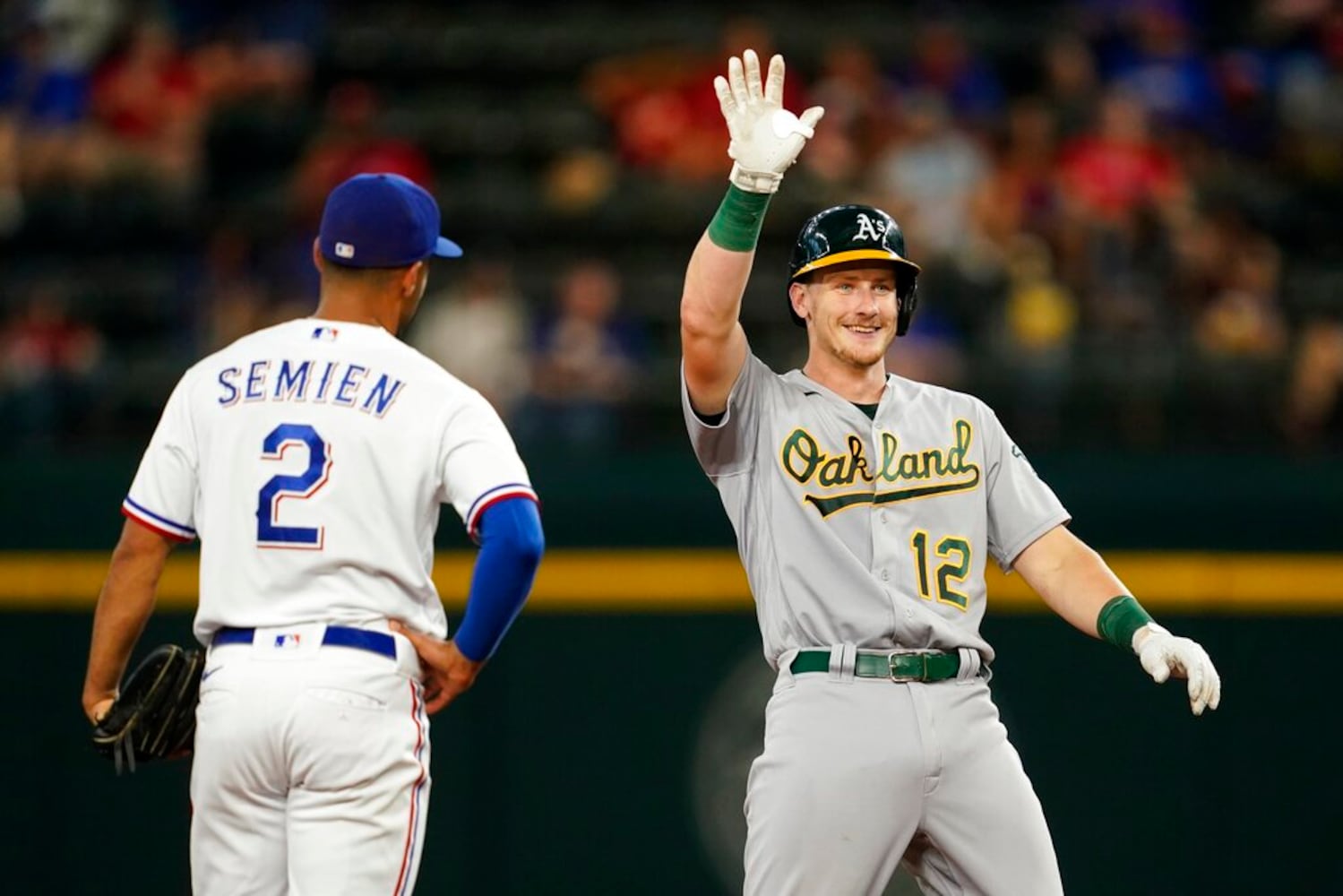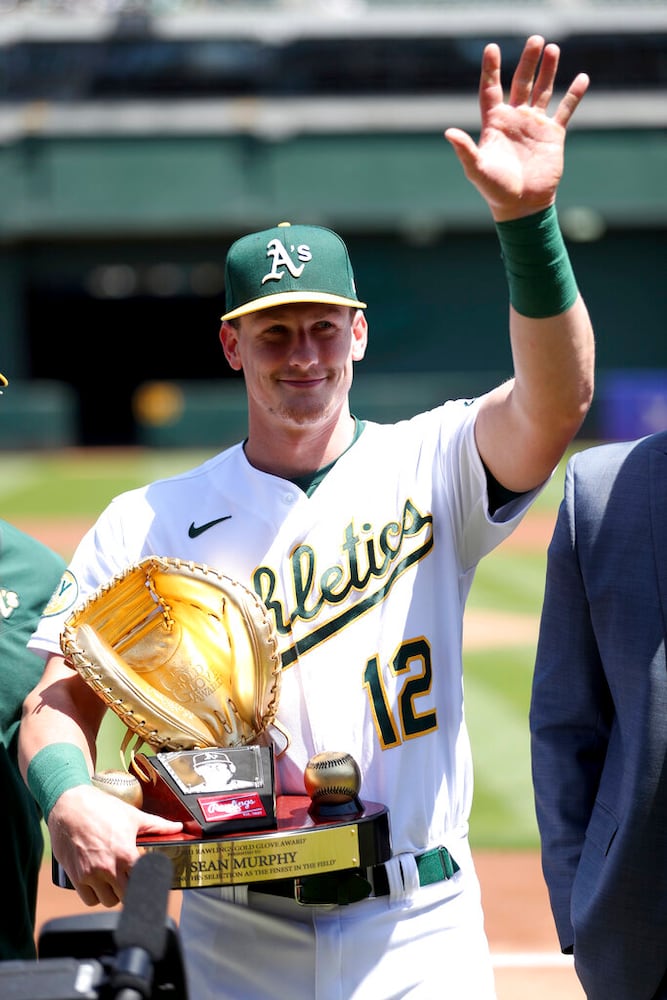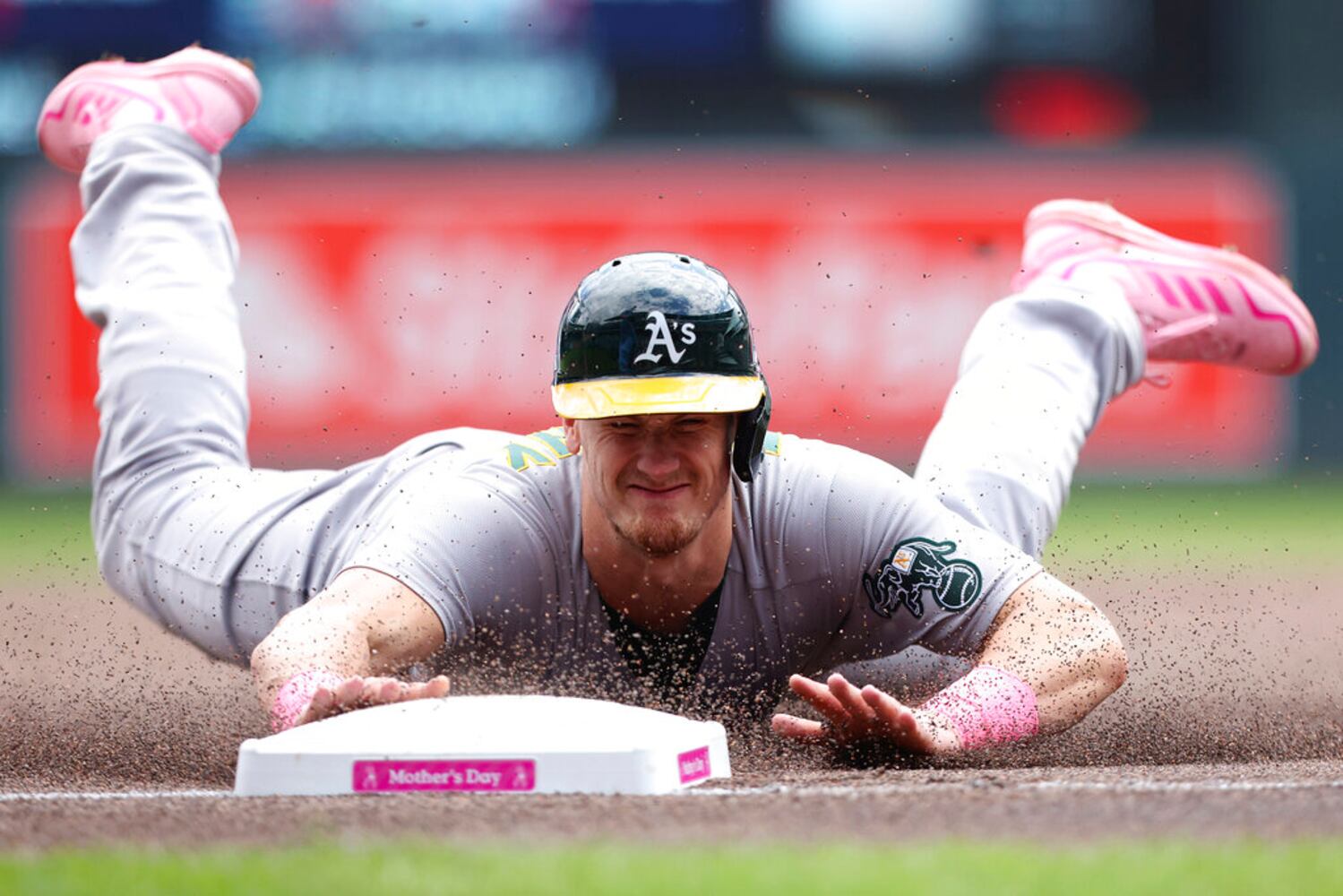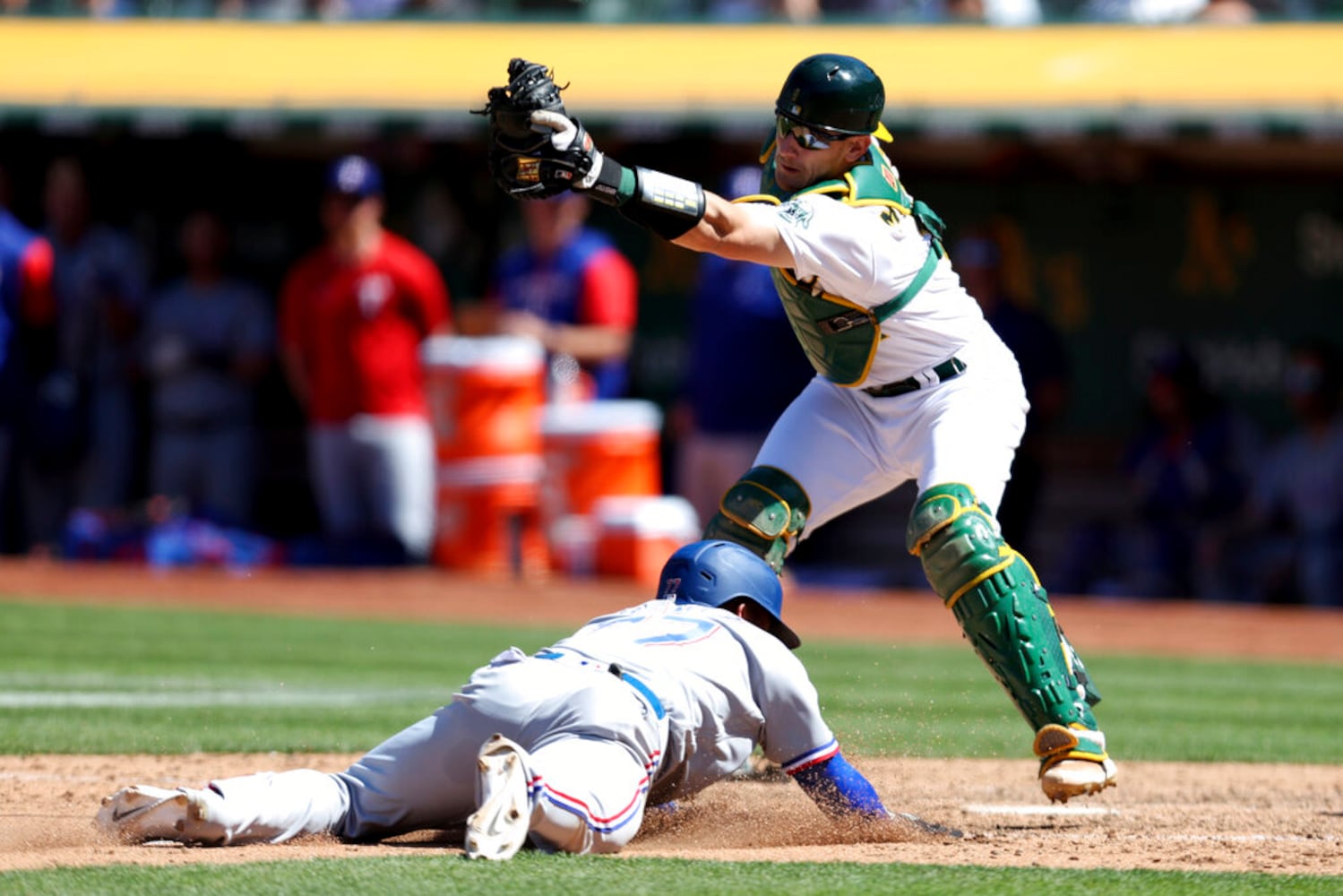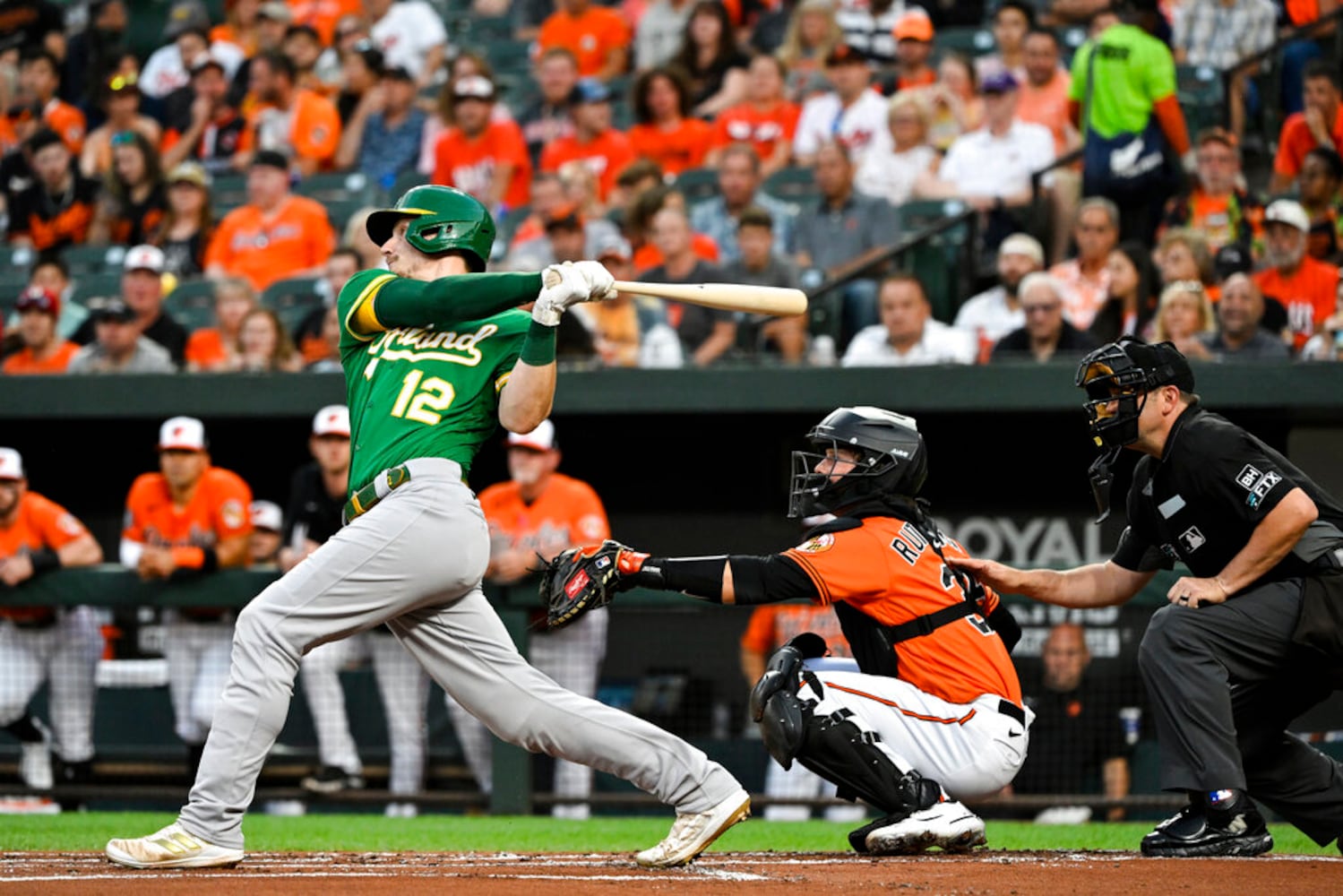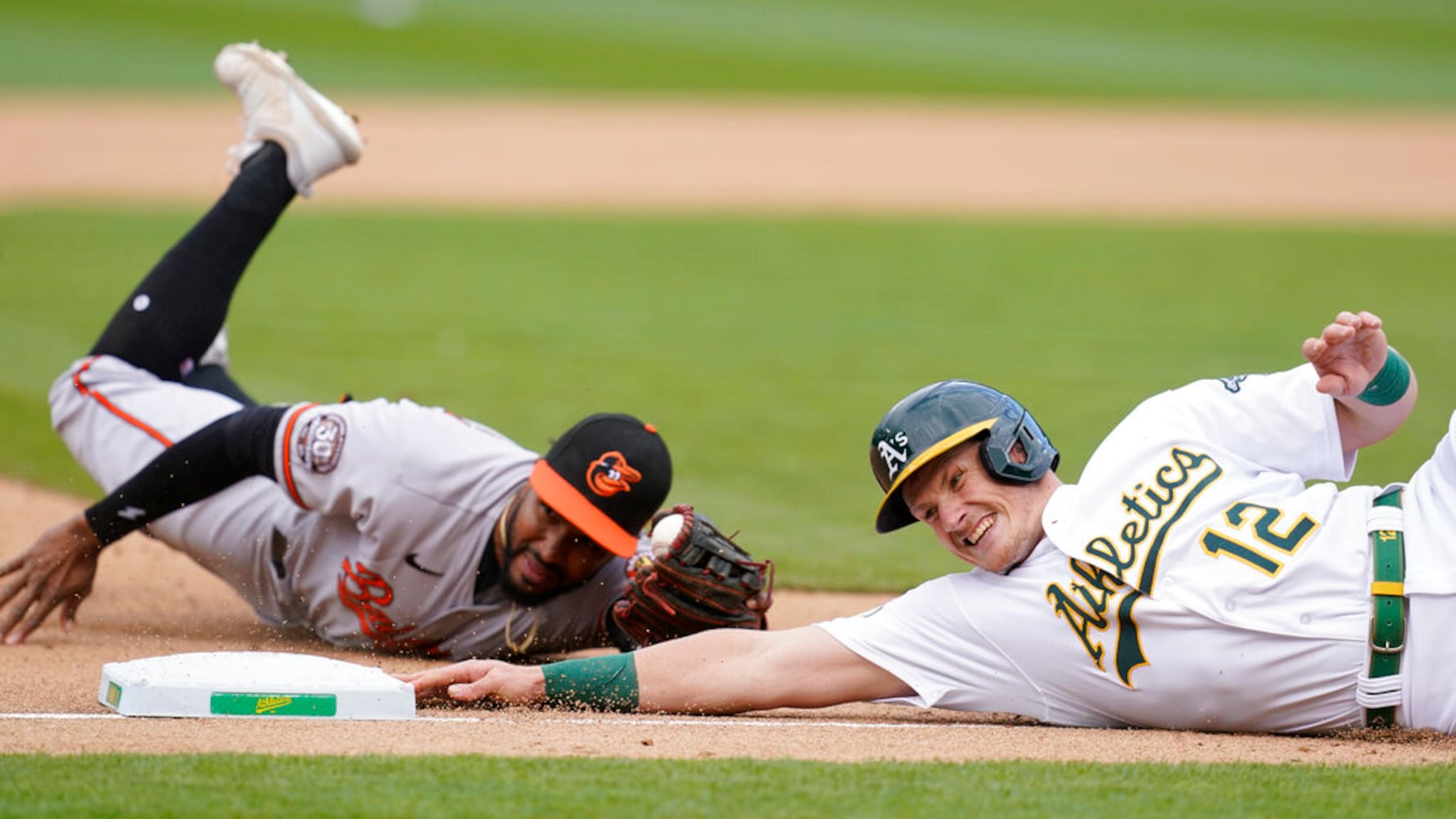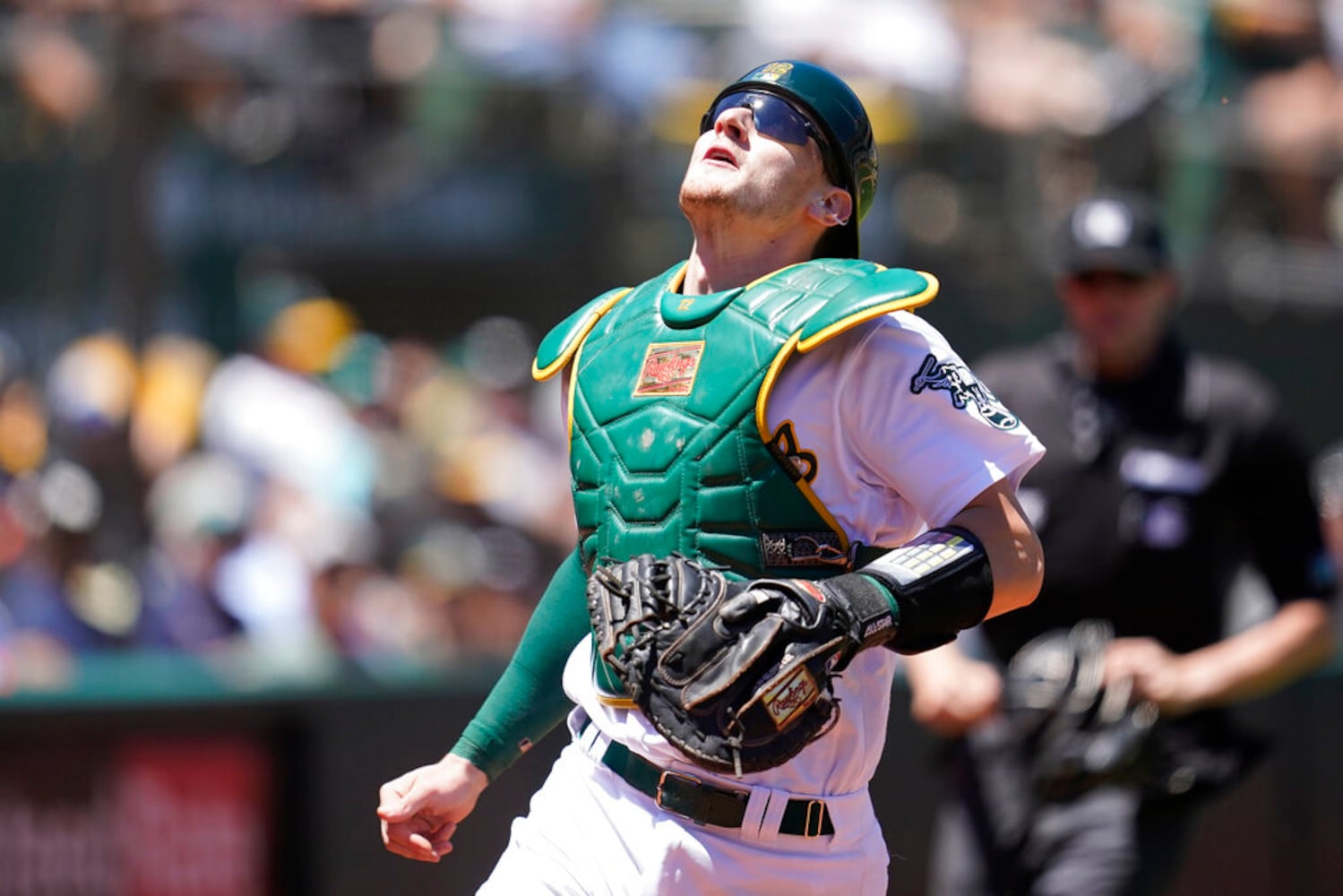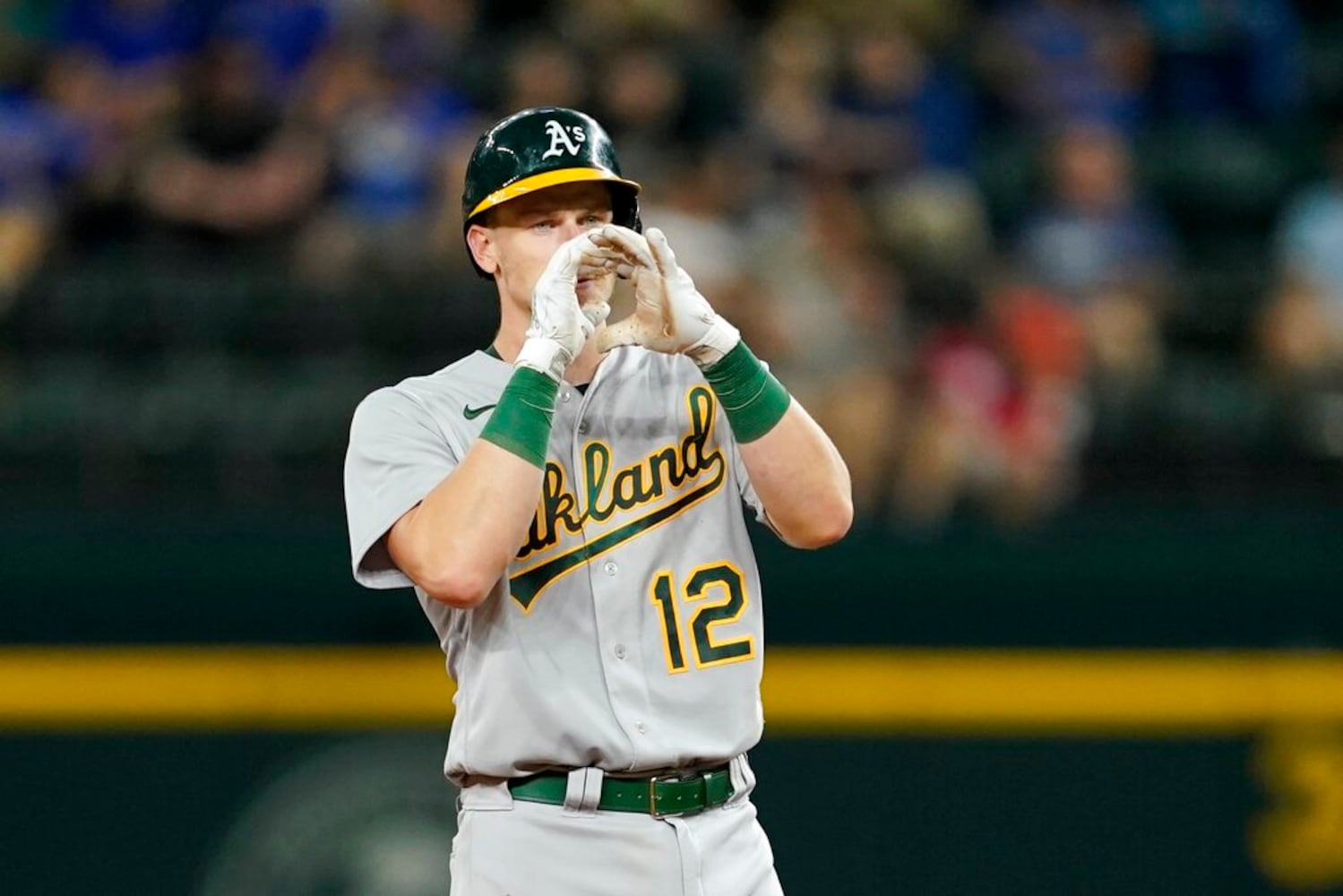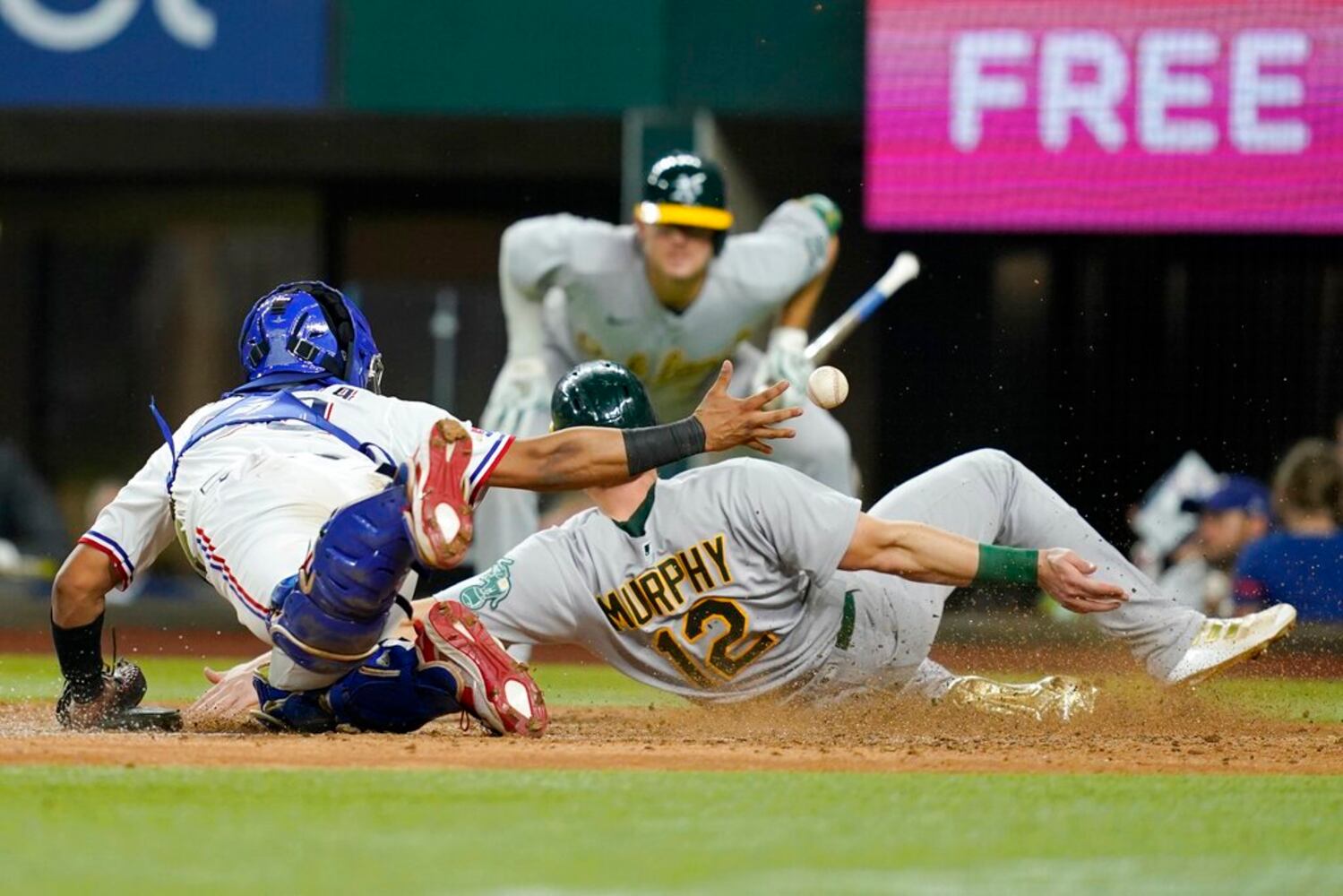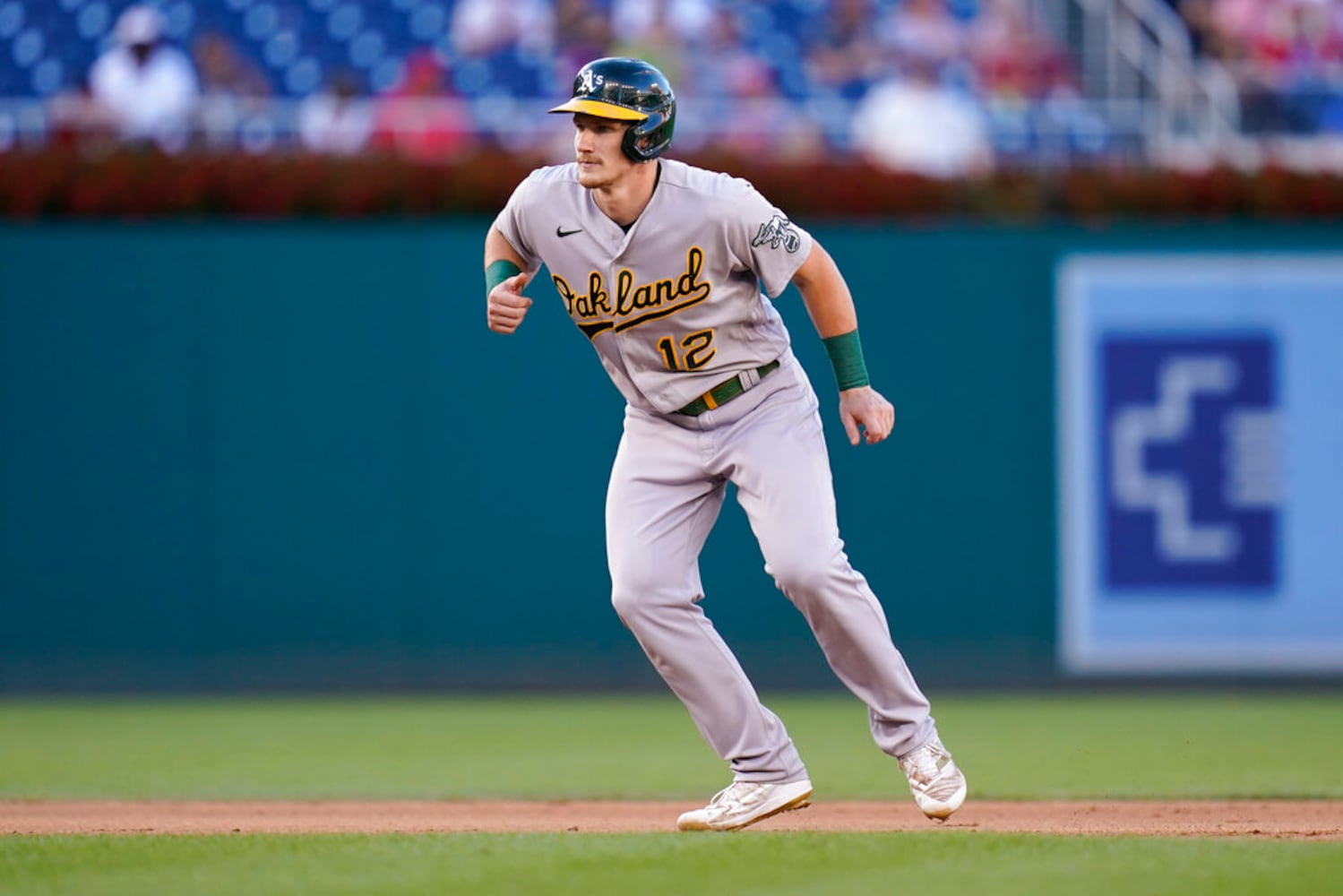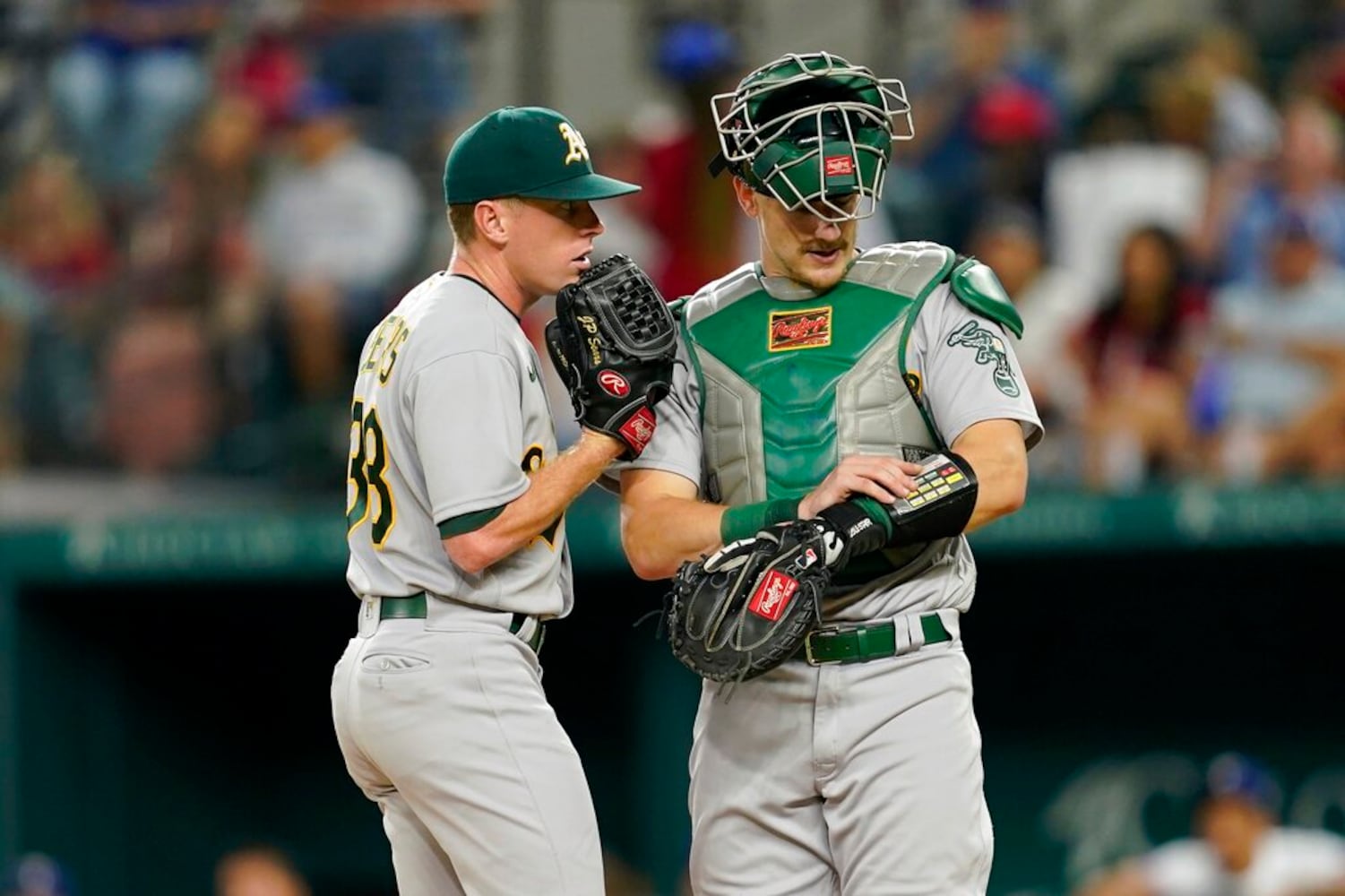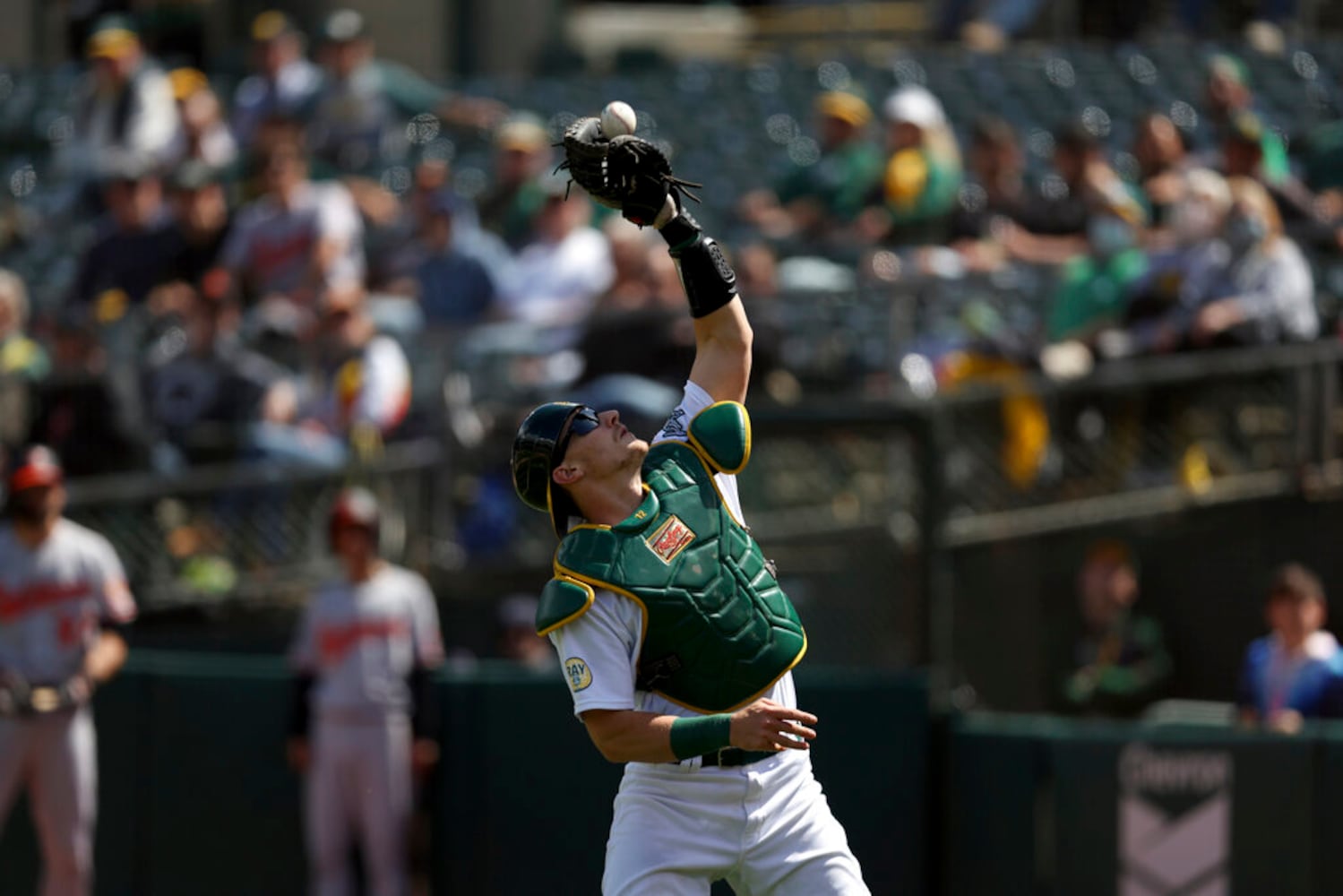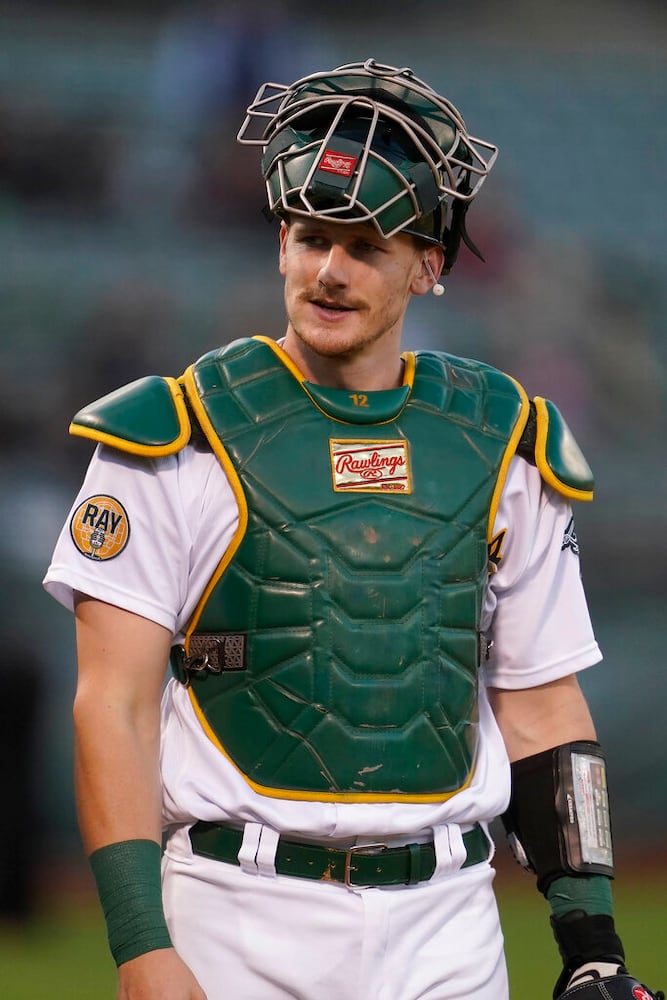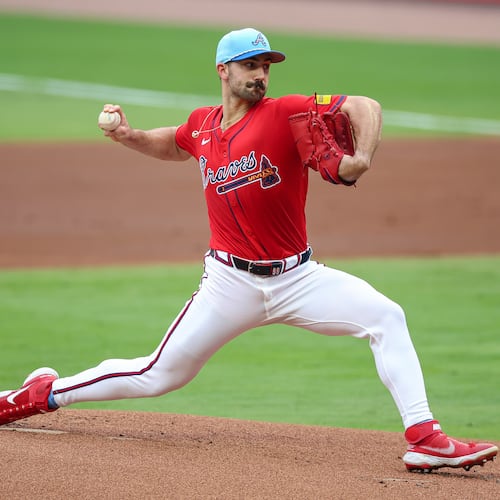One day in the offseason years ago, Gregg Beemer arrived at his indoor baseball facility, just as he had many times before. This time, a different vehicle sat out front – not the truck he saw daily for years.
When Beemer entered the facility, he spotted Sean Murphy, a minor leaguer who spent as many, if not more, hours there than anyone over the years. Beemer asked Murphy what had happened, and soon learned the car parked out front was a loaner from Phil Wilcher, the mechanic they both used.
“Man, I got Phil trying to fix my truck,” Murphy told Beemer.
“Yeah, that’s wrong with it?” Beemer asked.
“Phil says it’s done,” Murphy replied. “I said, ‘Can’t we ship it out to Vegas (for the minor-league season) and just, you know, get it through another year?’”
A little background on Murphy’s beloved truck: The red 2004 Ford Ranger had seen much better days. One of Murphy’s close friends estimated that Murphy put six new starters in the truck to help save its life over the years. Beemer said there might have been holes in the truck’s floor – and he didn’t sound like he was joking. Everyone but Murphy had let go of that precious truck.
As Murphy and Beemer stood together in the facility talking about the vehicle, Wilcher, the mechanic, called Murphy.
“Man, I’ve looked at this thing,” Wilcher said. “There’s just nothing we can do. We gotta get you another car.”
Murphy, who mentioned he had just bought a house, begrudgingly agreed. He soon purchased a 2009 Chevrolet Silverado, which Murphy, now a Gold Glove catcher for the Braves, drives to this day.
This is everything Murphy’s loved ones appreciate about him. The 28-year old is a throwback. In an age when some athletes are known for their lavish lifestyles, Murphy is simple.
The money and fame haven’t changed him. He might be one of baseball’s best catchers, but he’s no different than when he was an undersized high schooler without any full-ride scholarship offers to play Division I or Division II baseball.
“He is the same exact Murph,” said Jeremy Randolph, one of Murphy’s former college teammates who is still a close friend. “You’d have no idea that he had money or had all the success.”
‘I am going to play Division I’
At one point in his son’s high school recruitment, Mike Murphy, who pitched professionally in his day, tried to set realistic expectations, as parents often do. He told Sean that, well, maybe Division I would not be his path. Sean, his father implied, had to be open to anything.
“Dad, I am good enough to play Division I and I am going to play Division I,” Sean said in a resounding and confident tone.
To that point, Wright State had offered Sean – who grew up around Dayton, Ohio, where Wright State is located – a spot as a preferred walk-on. Xavier would have taken him as a walk-on, but Sean would have had virtually no chance to make the team. Murphy’s other opportunities were in Division III – Division II schools had turned him down.
The Braves recently traded six players, including talented young catcher William Contreras and multiple promising prospects, for … a catcher who garnered hardly any interest as a high schooler years ago. Murphy’s journey to this point is remarkable.
The biggest reason many eyes missed Murphy: his lack of size. “If you asked me to pick him out in high school, I’d have no idea who he was,” said Randolph, who lived in a neighboring town and played against Murphy in high school. Murphy had the talent and skill, but colleges typically don’t notice a 5-foot-5, 120-pound freshman catcher.
But Greg Lovelady, who eventually was Murphy’s head coach at Wright State, had coached Murphy at catching camps he held. Justin Parker, the pitching coach at Wright State when Murphy attended the school, coached Murphy’s high school travel baseball team. Greg Beemer, who runs Dayton Classics Baseball Club, had eyes on Murphy throughout his high school career.
They all agreed on something.
“This guy could catch,” Parker remembers thinking. “He was born to catch.”
“He’s the most consistent catching guy we’ve ever had,” said Beemer, who estimates his program has sent 95% of its kids to play college ball.
Murphy had nailed the fundamentals, and kept working at them. He also always threw the ball straight. He was intelligent. He did everything a catcher needed to be successful.
He just hadn’t matured physically.
But Mike, his father, is listed at 6-foot-4, and Wright State thought that provided a decent projection for what Sean could be when he hit his growth spurt. Sean is now listed at 6-foot-3 and 228 pounds, so they were correct.
“If you were just paying attention, you see a smart kid with a really, really high baseball IQ,” Parker said. “He had a really, really good catching skillset – a very comfortable working base. And then (with) his dad, you saw physically what he had a chance to become.”
Added Murphy: “It was just one of those things where I just kept working, kept grinding. I always thought I was good enough and it was one of those things where I was undersized and I was just waiting for my growth spurt to kick in. So it was like, ‘I’m waiting for it, I’m waiting for it.’ Until then, (I was) just going to keep working on those fundamentals and those baseball skills so that when I finally did grow, I had a good foundation for the strength that I was developing.”
Credit: AP
Credit: AP
‘I’m telling you he’s gonna be a Gold Glover’
By the time he arrived at Wright State as a pitcher, Randolph had heard a lot about Murphy. When they met, Randolph was a bit confused.
“Oh, it’s this guy?” Randolph thought.
Randolph knew Murphy had a great freshman year at the school, but this was not the specimen he had expected. Parker, the pitching coach, told Randolph he would pitch to Murphy for only two years because the catcher surely would be drafted as a junior. “All right man, cool,” Randolph thought sarcastically. “I’m sure you’re saying that about all the other catchers and stuff. Sounds great.”
As it turned out, the rumors were true: This guy was legit.
“Oh, that looks way different than everybody else on our team,” Randolph noted at the time. “That’s considerably better than everyone else.”
“He could do stuff that nobody else could,” Randolph added.
One time in practice, Murphy backhanded a ball in the dirt and sidearmed a dart to throw out the fastest player on the team by 20 feet. “That’s not, like, normal,” Murphy’s teammates muttered to one another. Murphy’s batting practice looked and sounded different. Everything about him was as advertised.
And if you were on the mound, you wanted Murphy catching you. “It was a dream,” Randolph said. “You didn’t have to worry about anybody trying to steal or anything, you kind of just focused on pitching and he’d take care of rest.” Eventually, opponents stopped testing Murphy’s cannon arm.
Murphy continued blossoming at Wright State, a rise that eventually took him near the top of the draft. Those who know Murphy and watched him grow – literally and figuratively – say he gained swagger from a summer playing in the Cape Cod Baseball League, which features many of the country’s top collegiate players. He always had confidence, but he walked around differently, while still being his humble self, after that summer.
Even before that, his college coaches had told him he would one day be a top draft pick and make it to the big leagues. But it might have taken some success against much better competition for Murphy to truly realize he was one of the country’s elite players.
Murphy puts it like this: “I didn’t necessarily look at (the other players) like, ‘Oh, I’m better than these guys’ but like, ‘Oh I can hang with these guys, too, these highly recruited, highly ranked players.’”
In 2016, Oakland drafted Murphy in the third round. He might have been a first-round pick had he not fractured the hamate bone in his wrist early in his junior season. (He healed and returned in the same season).
“I told people, ‘I’m telling you he’s gonna be a Gold Glover,’” Lovelady said.
As it turned out, Murphy won a Gold Glove in 2021, his second full season in the majors. He’s one of the sport’s elite backstops, someone who could be in the running for the Gold Glove Award every year. He is that good.
And now, he’s part of the Braves’ core.
‘He just kind of kept a chip on his shoulder’
Dayton Classics Baseball Club is a bit different than a typical premier travel baseball program.
They carry larger rosters because they believe kids must earn the right to be on the field, and they think their players should become accustomed to the fierce competition they’ll face on their college and professional teams. When Murphy played there, they had only a bare-bones facility. Whereas other teams recruit other states for talent, their players are all from the Dayton area.
“We hold people accountable,” said Beemer, who heads the operation.
In part, Murphy is a product of this environment. He’s the guy who has never stopped feeling like he had to prove himself.
“He just kind of kept a chip on his shoulder,” Parker said.
“He never felt like he’d arrived,” Lovelady said. “Every time he kind of got close to that, it was like a next step, and then he had to do it all over again.”
He has never liked attention or recognition. In fact, he shies away from it. He simply wants to hone his craft.
He doesn’t use social media. He didn’t care about his phone – so much so that he often misplaced it and wouldn’t notice it was gone until he absolutely needed it. He’s never liked distractions.
Every offseason, you could find him in Beemer’s facility. Murphy and his wife recently moved to Nashville and this is his first offseason there, but he still has a key to that facility in Dayton.
“I hope he doesn’t get mad at me for saying this: I don’t even know what other hobbies he had,” Parker said. “It was just baseball all the time.”
Student of the game
From a young age, Murphy studied baseball and its intricacies.
As a boy, he kept score in his scorebook when he watched games. At certain points during games, Mike would ask his son: “What would you do here?” After Sean would answer, Mike would ask: “Why?”
“And we would argue back and forth about what we would have done in that given situation to see who was going to be right, and then play would transpire,” Mike said. “As baseball goes, you look like a genius or you look like an idiot – one of the two, right? Anything that you decide in the game, sometimes it’s a gut feeling based upon a situation and so on.”
Sean has always been known for his strong baseball IQ. At age 14, he began calling pitches for his travel-ball team. In college, Murphy became the first pitcher Lovelady ever trusted to call games.
Between innings, Lovelady and Murphy would talk in the dugout. Their conversations revealed something: Murphy had a deeper understanding of the game than almost anyone at that level. Lovelady could trust that everything Murphy told him was accurate.
“This guy just is different,” Lovelady said. “Like, he gets it.”
Lovelady remembers talking to someone from the Oakland organization who told him Bob Melvin, the Athletics’ former manager, wanted Murphy on the big-league roster soon after he was drafted because pitchers loved throwing to him. They trusted him. Of course, Murphy had to spend a couple of seasons in the minors before Oakland called him up.
Catchers have many duties that go beyond the field. They must help prepare for games. They have to be aware of scouting reports and tendencies. They need to know the ins and outs of their pitchers and what they throw. Murphy’s brain is equipped to handle it all.
“I’m not sure if you would say he has an eidetic memory, but when he hears something, he absorbs and retains it,” Mike Murphy said. “He’s always been that way. Super smart.”
‘It’s just Murph’
Those closest to Murphy speak about him with a certain fondness in their voices. To them, he’s not Sean Murphy, the Gold Glove catcher. He’s Murph, the old soul whose kindness shows through in everything he does. He is a simple man, even if his circumstances could have led him to live a vastly different life.
“He just works hard at what he does,” Mike Murphy said, “and he wants to be a good person.”
This is what makes Murphy special. At his core, one of baseball’s top catchers is still a regular guy. He hasn’t lost himself.
Ask about his off-field persona, and you’ll hear a range of stories, from impressive to quirky to heartwarming.
He’s good at video games and bowling and card games. “Literally anything, he’s probably better than you and he does it with ease and you’re like, ‘All right man, good for you,’” Randolph said. In college, Murphy ate pies right out of the middle and worked his way to the edges. “It’s one of the weirdest things I’ve ever seen,” Randolph said, “but he does it religiously.” Last offseason, Murphy helped a buddy build shelves in the friend’s house.
Murphy has not changed, and probably never will.
This is the same guy, after all, that had to have his hands pried off the truck he loved so much, even if it could no longer safely get him around town.
“You talk to him, and you have no idea that he’s this really, really good professional athlete with all these accolades,” Randolph said. “It’s just Murph. Nothing different about him.”
About the Author
Keep Reading
The Latest
Featured

